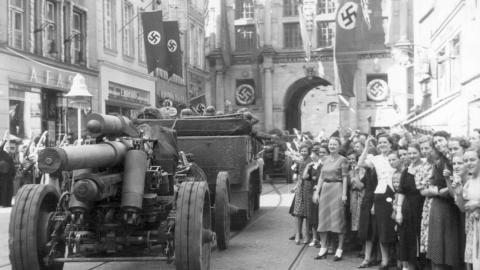Polish WWII Anniversary Highlights Transatlantic Rifts

The date that evokes the onset of those nightmares is September 1, 1939 — the day Germany invaded Poland.
On Sunday, around 250 international guests will meet in Warsaw to commemorate the beginning of the darkest period of European history.
US President Donald Trump was due to be among them but he cancelled his eagerly anticipated state visit on Thursday as Hurricane Dorian barreled towards the Florida coast. Vice President Mike Pence will take his place.
The gathering will not just be about paying tribute to the last living survivors and those who fell victim to war and occupation. The past will weigh heavily — but so will the future.
If things go well, the anniversary will be a reminder of the dire consequences of failing to confront evil and of the virtues of staying together.
But such an outcome is not a given.
The Polish government, which is hosting the day of remembrance, will find itself triangulating between Pence and German President Frank-Walter Steinmeier, whose presence stands for the historical burden and moral responsibility that modern Germany bears for past sins.
The Polish-American-German triangle was once the ultimate example of how the lessons of the 20th Century transformed Europe and the transatlantic world.
America played a unique role in providing security and shaping the political culture of both post-1945 Germany and post-1989 Poland. And reconciliation between Poland and Germany has been the cornerstone of the post-'89 European order.
What is more, the US endorsement of a strong Polish-German partnership was an indispensable pillar of both the EU and NATO.
But those times are gone. Today, it is the policies of Washington, Berlin and Warsaw — and the mutual relations between...
- Log in to post comments










